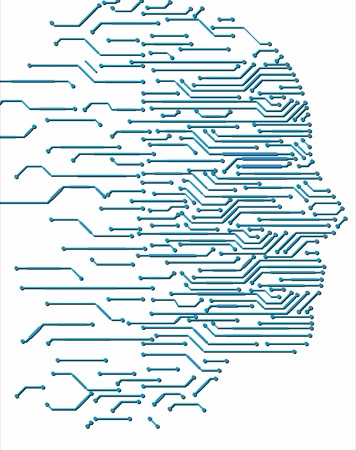In this month’s Sharma’s Endoscopy Insights, I highlight two studies on the use of artificial intelligence in colonoscopy and a study comparing different types of endoscopic mucosal resection.
EMR using a hot snare technique commonly is performed for the resection of nonpedunculated large polyps (=2 cm). In the first study I highlight, cold snare EMR was found to be safer than hot snare EMR but resulted in higher rates of residual polyps.
Multiple randomized controlled trials have shown the benefit of AI in increasing adenoma detection rates (ADRs). In the second study, a systematic review and meta-analysis involving more than 23,000 patients, investigators found a 20% increase in ADR associated with AI colonoscopy. However, no effect was seen on sessile serrated lesions.
Finally, large language models such as ChatGPT can be used in clinical practice, and in the third study I discuss, researchers used ChatGPT for patients undergoing colonoscopy, eliciting follow-up recommendations that were in agreement with published guidelines in the vast majority of patients.
Cold Versus Hot
Gastroenterology 2024;167(4):764-777
In this randomized controlled trial, researchers in Germany compared the safety and efficacy of cold and hot snare EMR.
The study was conducted across 19 medical centers between June 2021 and July 2023. A total of 363 patients with 396 polyps were enrolled in the intention-to-treat analysis. After four weeks, researchers conducted a standardized telephone interview to ask about adverse events (AEs) and post-discharge symptoms. In 16 cases, the interview instead took place during the first endoscopic follow-up appointment, scheduled approximately four months after the EMR.

Researchers found that major AEs occurred in 1.0% of the group that underwent cold snare EMR (2/193; 95% CI, 0.2%-3.7%) and in 7.9% of the group that underwent hot snare EMR (16/203; 95% CI, 4.9%-12.4%) (odds ratio, 0.12; 95% CI, 0.01-0.54; P=0.01). The rate of perforation was 0% in the cold snare group and 3.9% in the hot snare group (P=0.007). Post-endoscopic bleeding rates were 1.0% in the cold snare group compared with 4.4% in the hot snare group (P=0.40).
In summary, the results suggest that cold snare is safer than hot snare EMR, with almost no major AEs. But cold snare was associated with a higher rate of residual adenomas, which the researchers said should be taken into consideration.
AI and Adenomas
Gastrointest Endosc2024 Aug 29. doi:10.1016/j.gie.2024.08.033
In this meta-analysis, researchers from Australia examined existing high-quality data on the effect of computer-aided detection (CADe) systems on colonoscopy quality.
The researchers included 28 randomized controlled trials comprising results from 23,861 patients.
They found that ADR increased by 20% when CADe systems were used (relative risk [RR], 1.20; 95% CI, 1.14-1.27; P<0.01) and the adenoma miss rate decreased by 55% (RR, 0.45; 95% CI, 0.37-0.54; P<0.01). Using a CADe system also significantly increased the number of adenomas detected per colonoscopy (weighted mean difference, 0.21; 95% CI, 0.14-0.29; P<0.01).
But for sessile serrated lesions, CADe systems didn’t seem to help, with lesion detection and miss rates similar whether or not these systems were used (detection: RR, 1.10; 95% CI, 0.93-1.20; P=0.27; miss: RR, 0.44; 95% CI, 0.16-1.19; P=0.11).
This study supports the use of CADe systems to improve colonoscopies, although the researchers caution that these systems need more training on sessile serrated lesions.
ChatGPT Performance
Clin Gastroenterol Hepatol 2024;22(9):1917-1925.e17
In this study, researchers compared recommendations for colorectal cancer rescreening and surveillance made by ChatGPT4 and practicing gastroenterologists with guideline recommendations.
The study was conducted across two hospitals in Southern California. The researchers provided de-identified data to ChatGPT4 on 505 patients undergoing colonoscopy and then compared the model’s responses with guidance provided by practicing gastroenterologists and the U.S. Multi-Society Task Force (USMSTF).
ChatGPT4’s responses hewed closer to the USMSTF guidance than gastroenterology practice recommendations, with ChatGPT aligning with USMSTF 85.7% of the time compared with 75.4% for the gastroenterologists (P<0.001). ChatGPT and the USMSTF panel disagreed 14.3% of the time, mostly because ChatGPT recommended a different screening period than the USMSTF panel (26 later screening recommendations, 44 earlier screening recommendations).
The researchers concluded AI can be useful in a clinical setting, but further training is needed. They cautioned that data need to be appropriately de-identified before being fed into these systems.
Dr. Sharma is a member of the Gastroenterology & Endoscopy News editorial board.
This article is from the October 2024 print issue.






